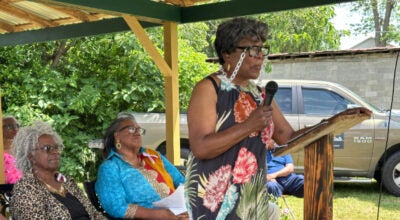County ponders retirement fix for former hospital employees
Published 12:04 am Tuesday, April 7, 2015
NATCHEZ — Members of the Adams County Board of Supervisors said Monday they’re working to figure out a solution to the problem of unpaid retirement benefits for former Natchez Regional Medical Center employees.
One of the ideas floated to address the issue has been for the county government to cover the difference needed for employees to be credited with their retirement payments.
“We want to do it, but we have got to found out the amount of what it is,” Supervisor Mike Lazarus said.
When the county-owned hospital filed for bankruptcy protection in March 2014, one of the unsecured creditors in the filing was the Public Employees Retirement System.
After the filing, employees of the hospital learned that even though they had continued to make employee contributions to the PERS system, the hospital had not remitted the required 15 percent employer portion from November 2013 forward.
PERS officials have said the employee payments could not be posted without the employer portion, so those months are not reflected in total accrued work.
Kenneth Lefoldt — the certified public accountant who was appointed by the bankruptcy court to serve as liquidating trustee — said last month he has remitted the employer portion of PERS payments for the post-petition period, but the state system has told him they can’t post it because the pre-petition funds still haven’t been paid.
Lazarus said figuring out what payments have been made, what to do about employees who weren’t vested in the system and other issues have made determining how much is owed a moving target.
“It is going to take some figuring to see what all of it is,” he said. “We have every intention of honoring that contract with employees. It was a contract between the employees and the hospital.”
Suprvisors President Darryl Grennell said the board will also have to find out if it is legal to make any payments.
Board attorney Scott Slover said he believes there may be a solution that serves as a balance between the interests of the employees and the interests of the taxpayers.
“There are a lot of moving parts here,” he said. “There are county laws you have to deal with, PERS itself and then you are dealing with a bankruptcy settlement.”
Even though the hospital was county-owned, it had an independent board and independent books. At the close of the bankruptcy hearing, it was sold to a private company, Community Health Systems.





